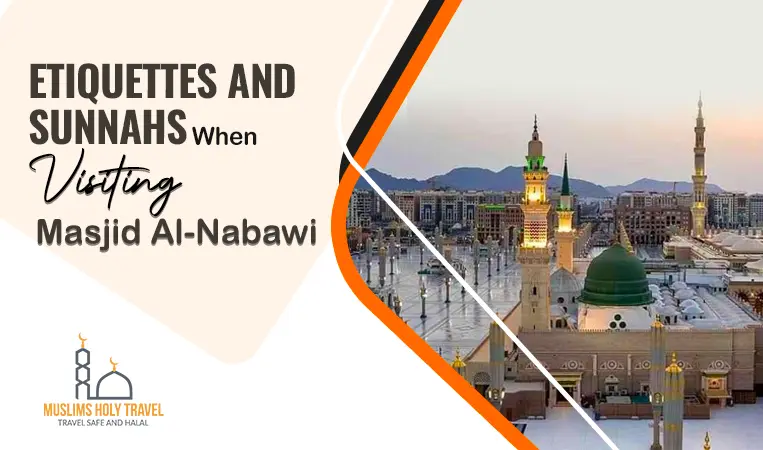
01 Oct, 25
by Muslims Holy Travel
Etiquettes and Sunnahs When Visiting Masjid Al-nabawi
Masjid Nabawi, also known as the Prophet’s Mosque, is the second-holiest site in Islam. Located in Madinah, this place has a special place in the hearts of Muslims because it contains the tomb of the Prophet Muhammad PBUH. Millions of believers visit this mosque during the pilgrimage every year to spiritually connect to the legacy of the Prophet PBUH. Beyond being a holy place of worship, the mosque has also historically served as a centre for education and social gatherings.
Are you planning a Ramadan Umrah in the coming year? You can get the most out of the religious trip by opting for all-inclusive Umrah packages. Make sure to visit Masjid al-Nabawi for a more transformative and spiritual experience. What to know when going to this mosque is important. Keep reading to explore etiquettes and Sunnahs when visiting the Prophet’s Mosque!
A Glimpse Into the Significance of Masjid Al-Nabawi
Before you delve into the major practices to follow when visiting Masjid al-Haram, let’s discuss its importance first. This mosque was built by the Holy Prophet PBUH himself after his migration from the city of Makkah to Madinah. It holds profound significance because it is home to Rawdah. In case you don’t know, Rawdah is an area between the Prophet’s burial site and his pulpit, which is known to be a part of paradise. Adding more, the site also has graves of the two closest companions of the Prophet PBUH, Abu Bakr and Umar RA. Both are buried next to him.
Etiquettes and Sunnahs When Visiting Masjid Al-Nabawi
No matter what sacred place you visit during your Umrah, it is paramount to act upon some etiquette. This is how you can make your visit meaningful while getting more blessings from Allah. The following are some of the major practices to keep in mind when going to the mosque.
Perform Ghusl
If you’re about to head to Masjid al-Nabawi after Umrah, make sure to perform a complete bath (ghusl). However, you need to carry out this act as per the Sunnah of the Prophet PBUH. It simply means to start your ghusl by washing hands, doing wudu, then pouring water over the head three times, and washing the entire body. Before you do a ghusl, make an intention as well.
Wear Modest Clothes
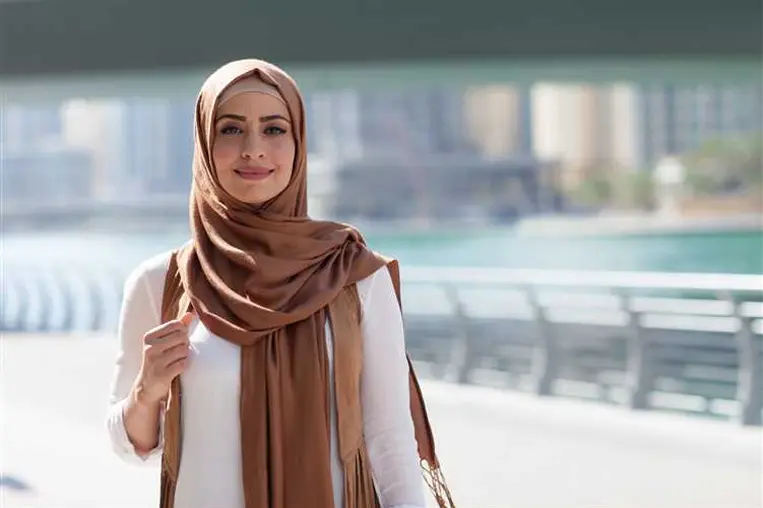
One of the important etiquettes to follow is to wear modest clothes. It is a critical element of Sunnah at the Prophet’s Mosque. This is how you can show respect to the holy site and adhere to Islamic teachings of humility. Men should avoid wearing shorts and sleeves. Women, on the other hand, must wear loose-fitting attire that covers the whole body except the face and hands.
Apply Mild Perfume
Whenever you plan a visit to Masjid al-Nabawi, apply a mild perfume that is fragrance-free. This especially applies to women. It is both an etiquette and a Sunnah, as it aligns with the Prophet’s PBUH love for fragrance. Not only this, but applying perfume is also the Islamic teaching of presenting yourself beautifully for worship and respect to the Creator. So, try to follow this act!
Make Sincere Intentions
When it comes to entering Masjid al-Nabawi, making sincere intentions (Niyyah) is very important. It dictates the spiritual reward of the act and ensures that your visit to this divine site is only for the pleasure of Allah. Intention is fundamental, whether it is to undertake the Umrah pilgrimage or visit any sacred place. The visit may not be accepted without any proper intention.
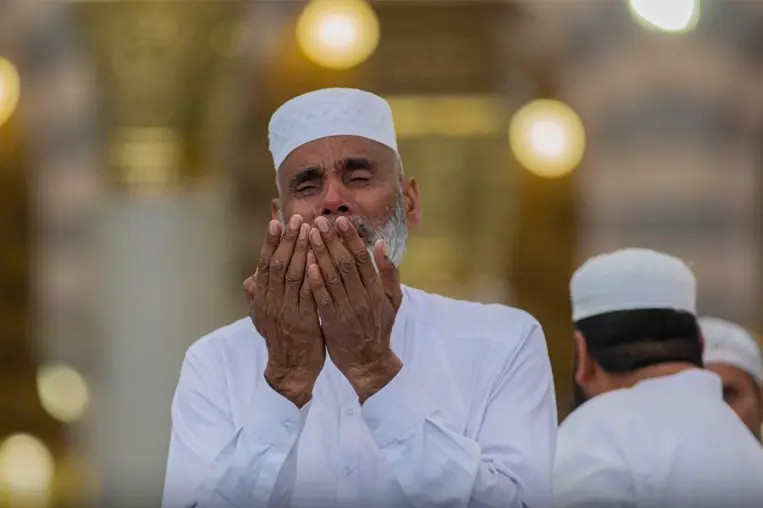
Use the Right Foot
It’s great if you’re travelling to Saudi Arabia for Umrah with your family. You can get the whole itinerary planned by investing in the right Umrah deals. Once your Umrah is completed and you’re about to go to the Prophet’s Mosque, it is Sunnah to use the right foot for entrance. It shows respect and honour for the divine site while also symbolising reverence to Allah Almighty.
Recite the Entrance Dua
In Islam, there is a specific dua for whatever you do. The same goes for visiting Masjid al-Nabawi. The moment you place your right foot in the mosque, it is recommended to recite the entrance dua to seek mercy and blessings from Allah. This is a key etiquette and a significant act of Sunnah that opens the door of Allah’s grace.
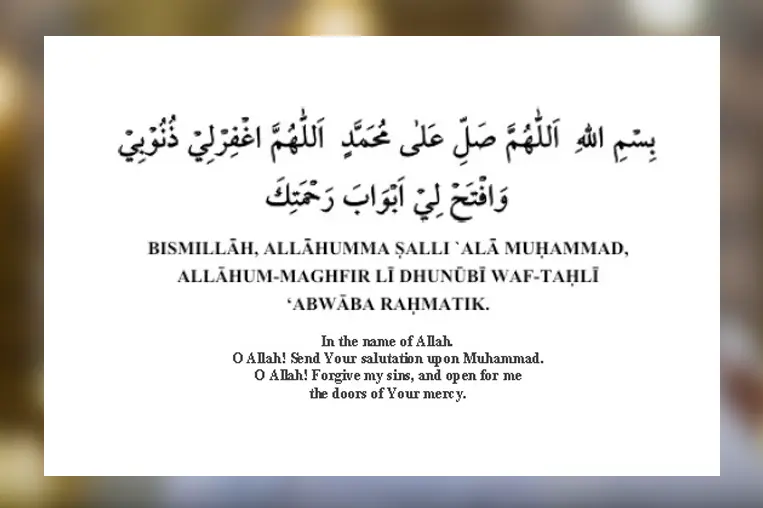
Pray Two Rakats
Praying two Rakats upon entering Masjid al-Nabawi is imperative. Also called Tahiyyat al-Masjid, these units of prayer are performed before sitting down in the mosque. No matter when you get an opportunity to visit this divine place in Madinah, Tahiyyat al-Masjid is considered a major act to follow. Every pilgrim, including you, must keep this etiquette in mind.
Respect the Rawdah
Make sure to respect the Rawdah when you get access to Masjid al-Nabawi. It is believed to be a garden from paradise, where the Holy Prophet PBUH lived and is buried. That is why this area has immense historical and religious significance in Islam. Whether you’re visiting the mosque individually or with your family, ensure that every single person shows respect to the Rawdah.
Offer Salutations to the Prophet
If you’re searching for what etiquettes and Sunnahs are to follow when visiting the Prophet’s Mosque, you’ve come to the right place. One of those is to offer Salutations to the Prophet Muhamamd PBUH. It is a direct way to show love to the Prophet PBUH and brings a plethora of rewards, like getting a higher status in the hereafter. All Muslims should certainly follow this act.
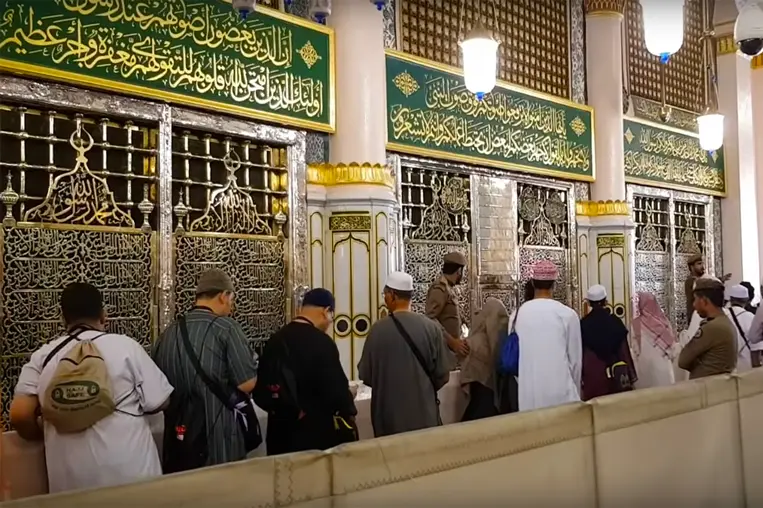
Be Respectful of Worshippers
One of the travel tips for group Umrah is to be respectful of worshippers. Be it carrying out the rituals or visiting sacred sites, such as Masjid al-Nabawi, you need to behave positively. There will be many other pilgrims doing Ibadah in the mosque. Try to respect their space and don’t disturb them. Your only focus must be to show humility and ask for the blessings of the Creator.
Common Mistakes to Avoid When Visiting Masjid A-Nabawi
Despite major etiquettes and Sunnahs to act upon, believers still make mistakes that they shouldn’t. Whenever you make a visit to the Prophet’s Mosque, try to act respectfully along the way. Below are some common mistakes that you need to avoid when going to Masjid al-Nabawi.
Raising Your Voice
Speaking loudly is not considered a good act in Islam. Well, it applies to every aspect of your life. If you’re heading to Masjid al-Nabawi after completing Umrah, ensure not to raise your voice. Yelling in the prayer hall, making supplications loudly, or having loud conversations can not only disturb others but the peace of the mosque as well. Your presence should reflect reverence.
Pushing, Shoving, or Rushing
Pushing, shoving, or rushing is also advised to be avoided during a visit to Masjid al-Nabawi. Rawdah is a place where every Muslim wants to reach. This is why this divine site is often too crowded. Since there will be a rush, there is no need to push others to get access to Rawdah. It is against the leading principles of Islam. You need to stay calm and act patiently in that situation.
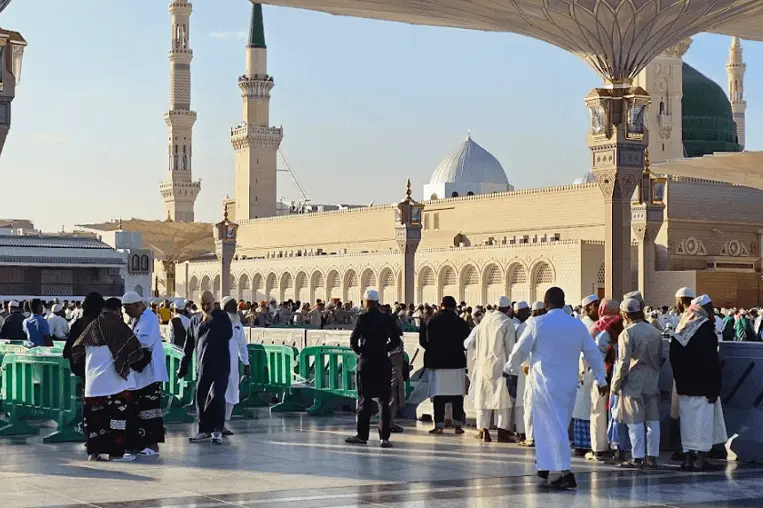
Wasting Time in Idle Talk
We’ve seen devotees entering holy places, such as Masjid al-Nabawi, and making use of social media excessively. Some waste time in idle talk, which isn’t good. Remember the sole purpose of your visit to the mosque. Instead of wasting your time in worldly affairs, engage yourself in spiritual activities. Offer prayers and make duas while asking Allah to forgive all your past sins.
Touching or Kissing Structures for Blessings
It is not a Sunnah to touch or kiss structures in the mosque for blessings. The true blessings are not kept in objects, but they are in following the path of Islam. You should do recitation as much as possible to please Allah and his beloved Prophet PBUH. Many believers unintentionally hurt others in the hustle of touching or kissing walls or minbars, which is usually not recommended.
Making Supplications to the Prophet
Some devotees mistakenly direct their duas to the Prophet Muhammad PBUH, and ask him for blessings. Keep in mind that Muslims only worship Allah and seek his blessings, mercy, and grace. We can act upon the Sunnah of the Prophet PBUH to follow his teachings and please Allah. Make and direct your supplications to Allah Almighty, as He is the Creator of everything.
Loud Congregational Duas Near the Grave
Another common mistake to avoid when visiting Masjid al-Nabawi is loud congregational duas near the grave. The Prophet’s PBUH burial site is not for loud supplications. Instead, you have to make quiet duas in remembrance of the Prophet so that other worshippers don’t feel disturbed. Some people have the habit of forgetting, and your loud duas can disturb them a lot.
Forgetting the Sanctity of the Space
No matter when you go to the Prophet’s Mosque during your pilgrimage journey, you must follow the holiness of the place. Many forget the sanctity of the space and treat the mosque as a public place. The way you act is of utmost concern. It has a big impact on the meaningfulness of your visit. Follow the key etiquette and behave nicely, inspiring others to act upon the decorum.
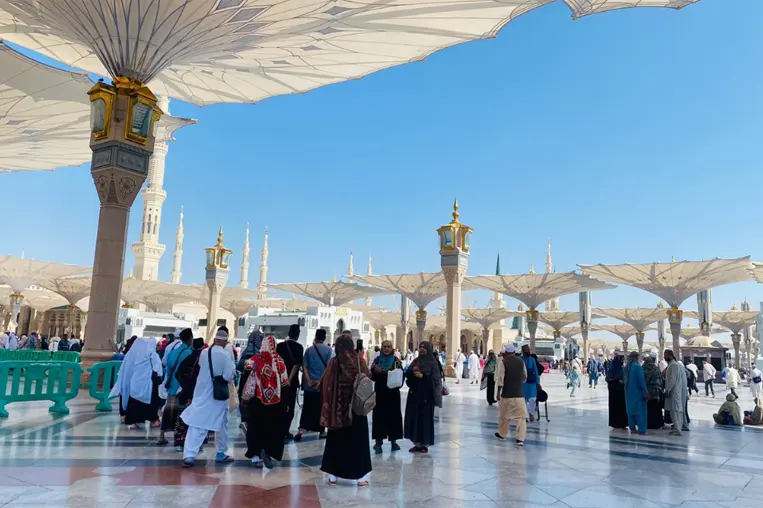
Final Advice: Know Before You Go
There are many sacred places in Islam, and the second-holiest of those is Masjid al-Nabawi in Madinah. This mosque has great historical and religious importance for all Muslims in the world. Millions of Islamic followers visit this site during their spiritual journey of Umrah to connect to the legacy of the Holy Prophet PBUH. Are you also planning a Ramadan Umrah in the coming year? Get in touch with Muslims Holy Travel to ensure a hassle-free travel. We provide all-inclusive Umrah packages to cover every aspect of your religious trip so that you can focus on Ibadah without any disruptions. When entering the Prophet’s Mosque after Umrah, you need to follow the etiquettes and Sunnahs we’ve discussed in this article. It is also imperative to avoid common mistakes, like loud conversations, to get the true blessings of Allah.
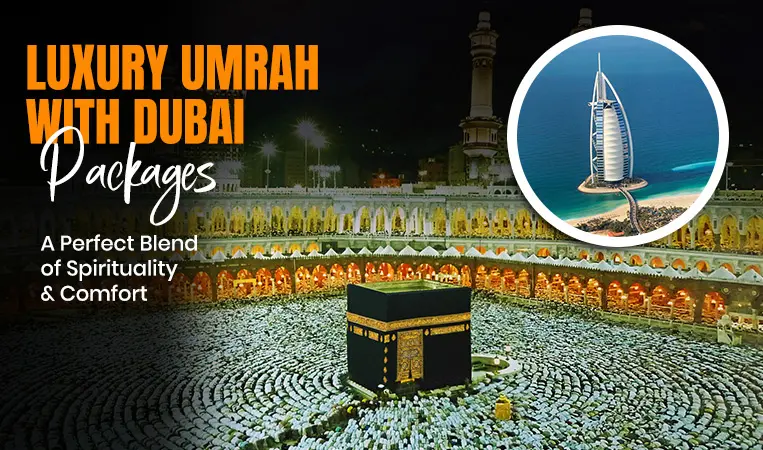
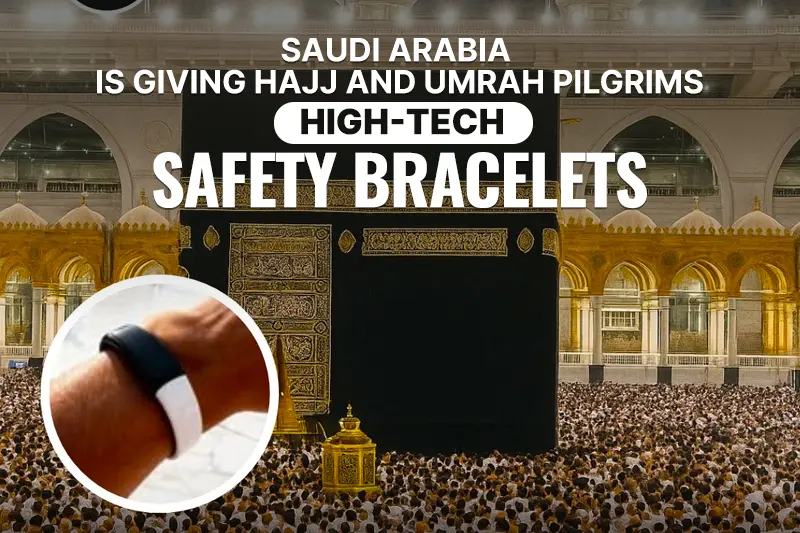
.webp)
